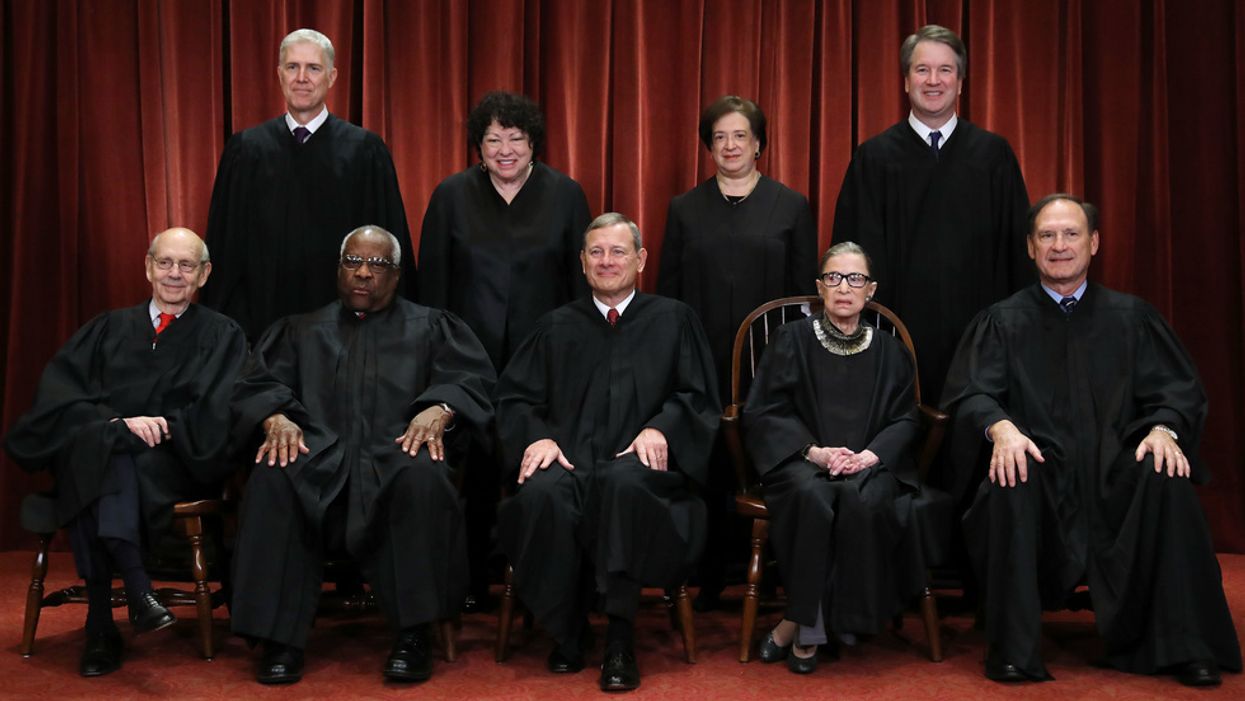Census forms asking a citizenship question may not be printed yet, the Supreme Court decided Thursday, because new evidence about the Trump administration's rationale for the query must be considered first.
The ruling put into limbo one of the most politically consequential legal battles in recent years, and called into question whether the dispute would be settled in time for the regularly scheduled nationwide headcount in 2020. The Commerce Department has asked the justices to settle the case in time to roll the presses on millions of census forms next week, which now seems almost impossible. Other government officials, though, have said all the preparations could get done on time even if the citizenship question's fate continues to be hashed out in the courts until the end of September.
For advocates of a better-functioning democracy, the census case is enormously important for two reasons.
They fear that asking about citizenship could result in such a significant undercount, especially in Latino communities where people fear that honest answers would mean their deportation, that the partisan balance of power in Congress and several big states' legislatures could be contorted for a decade.
And they worry that permitting the executive branch broad leeway to ask whatever questions it wants, without a rock-ribbed rationale, tips the balance too far in the president's favor.
The court says the administration's explanation for wanting to add the question was "more of a distraction" than an explanation.
The opinion by Chief Justice John Roberts, who joined the four liberals in deciding to kick the case back to the lower courts, included a serious note of skepticism about the administration's motive.
"We cannot ignore the disconnect between the decision made and the explanation given," Roberts wrote, referencing Commerce Secretary Wilbur Ross' stated objective of getting better data to enforce the Voting Rights Act. "If judicial review is to be more than an empty ritual, it must demand something better than the explanation offered for the action taken in this case."
It had appeared, from the oral arguments, that the court's five-member conservative bloc was ready to allow the question – until the files of a deceased Republican strategist, Thomas Hofeller, emerged last month. They laid bare details about the genesis of the question, suggesting the motive was in fact to produce an undercount that would benefit Republicans in the nationwide round of mapmaking that happens with the results of every census.
Judges in three federal lawsuits opposing the question have said the Voting Rights Act rationale doesn't stand up to serious scrutiny and was designed to conceal a different and more partisan motive.
The Trump administration not only wants an undercount to tip more districts Republican, the plaintiffs in the several lawsuits say, but also wants to count noncitizens so that they can someday be excluded from the population counts used for drawing political maps.




















Marco Rubio is the only adult left in the room